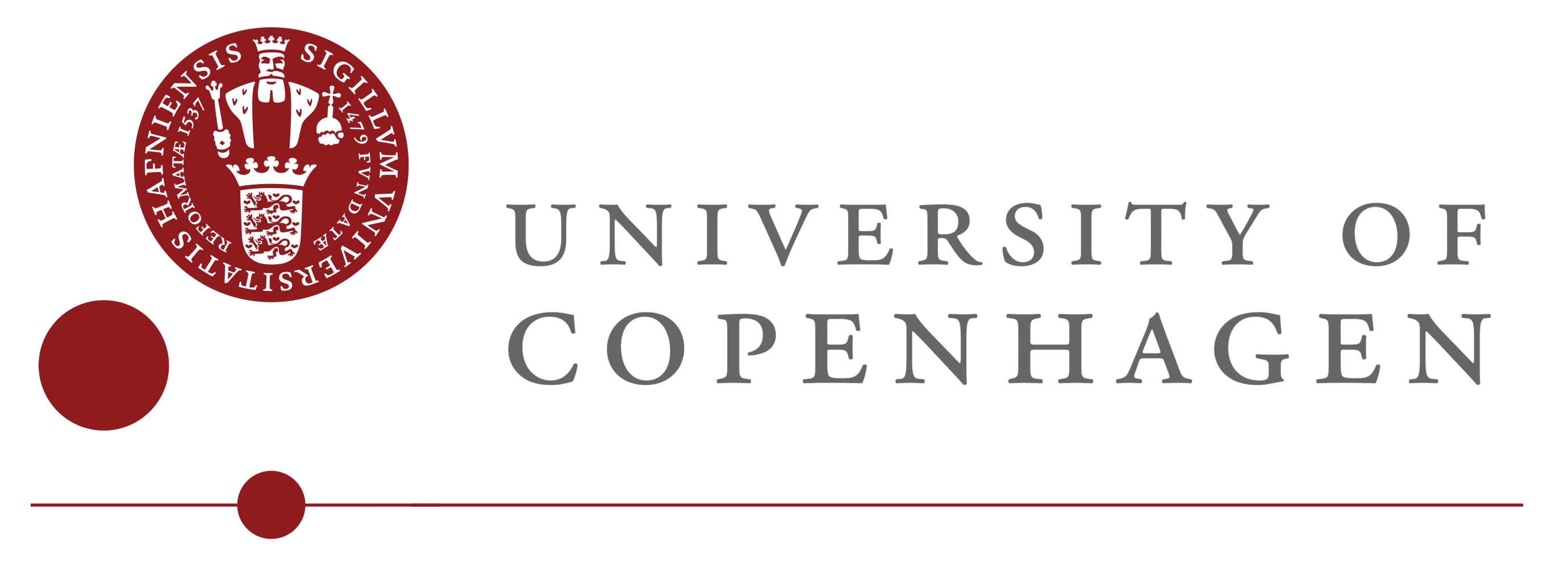Queer Pasts: What’s Queer in Queer History?
The international conference Queer Pasts: What’s Queer in Queer History aims to discuss and critically explore the “queer” in queer and trans history.
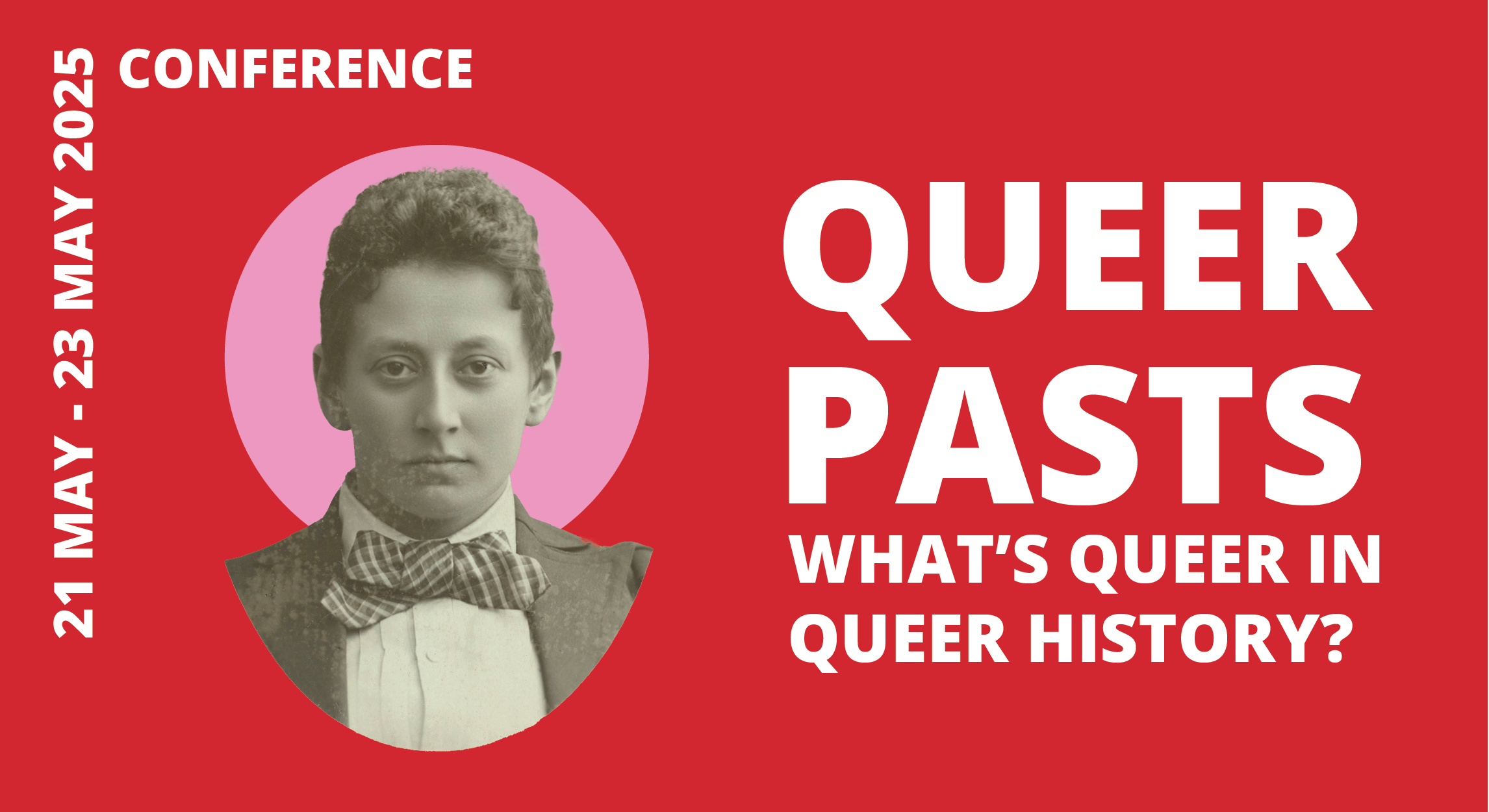
The conference will be held with in-person attendance.
About the conference
Queer history commonly refers to the study and documentation of the lives, experiences, cultures, and struggles and joys of LGBTQ+ people in the past. It covers a wide range of topics, including how gender and sexual diversity have been expressed, understood, and regulated in different societies, as well as how political, social, and cultural movements have sought to challenge discrimination and promote LGBTQ+ rights. In this sense, queer history is about carving out the contours of queer and trans lives, communities and cultures of the past.
Queer history is about challenging traditional ideas about archives and representation. Much of queer history has been erased, suppressed, silenced, or ignored by mainstream historical narratives. Queer historians have had to work creatively to uncover queer histories, using letters, diaries, court records, photographs, and oral histories to reconstruct the lives of LGBTQ+ people.
Queer history often challenges proper objects of study. While queer history aims to understand and shed light on LGBTQ+ pasts, we do not always know beforehand how these sexual and gendered categories emerge and assemble in distinct historical or contemporary situations. Therefore, queer history increasingly investigates the intersection of LGBTQ+ identity with other marginalized identities, including race, class, and disability. It can be argued that modern categories of gender and sexuality cannot be understood outside the violent historical and cultural fabrication of racial difference during slavery, colonialism, and imperialism. In this way, queer history often intersects with other critical approaches, such as feminism, postcolonialism, and critical race theory, to understand how gender and sexuality are shaped by other social factors like race, class and disability, as well as mechanisms of inclusion and exclusion.
Queer history is also about queering history. To question and challenge History’s research traditions as well as contest binary categorisations such as male/female, heterosexual/homosexual, and normal/deviant. To deconstruct and rethink how these categories have been created and used in different societies over time, and how they have affected people's lives, identities, and behaviours.
Queer history might question whether modern categories like “trans”, “gay” or “lesbian” can be applied to people in the past, or whether doing so erases the specific contemporaneous, historical and cultural meanings of their sexual or gender practices. It seeks to uncover new ways of thinking about sexual and gender diversity that are not limited by present-day definitions and imaginaries.
Aligned with this, queer history might explore temporalities that allow us to think about history in fluid and nonlinear ways, and question ideas of progression narratives from a "repressed" past to a "liberated" present. In doing so, queer history is often more interested in moments of rupture, discontinuity, and contradiction, showing how past and present understandings of sexuality and gender intersect in complex ways.
The conference Queer Pasts: What’s Queer in Queer History aims to discuss and critically explore the “queer” in queer and trans history.
21 May
Venue: University of Copenhagen, South Campus
| 12:00 – 14:00 |
Registration and coffee, Room: KUA3 – 4A.0.69 Auditorium |
| 14:00 – 14:15 |
Welcome and Opening Remarks Professor Rikke Andreassen (Roskilde University) and Associate Professor Michael Nebeling Petersen (University of Copenhagen)Room: KUA3 – 4A.0.69 Auditorium |
| 14:15 – 15:30 |
Keynote: Archives of Dissent: Sexuality.Caste.History Professor Anjali Arondekar (University of California, Santa Cruz) Suturing histories of caste and sexuality to archives of dissent in South Asia, this talk rearranges the grammar of our ethical engagements with the past and present. At stake here are the historical vernaculars that found the evidentiary regimes of rights and representation for minoritized subjects. What I offer here are intimations of andolan/dissent, meditations that move between the heady inspirations of protest and the stultifying violence of archival practices. Andolan is a movement in Hindustani music, an alankar (combination/ornamentation of notes) that oscillates between one fixed note and its counterpart, touching, suffusing, all that lies in between. Let us imagine such a history together. Chair: Rikke Andreassen Room: KUA3 – 4A.0.69 Auditorium |
| 15:30 – 16:00 | Break (KUA3 – 4A.0.69 Auditorium) |
| 16:00 – 18:00 |
Parallel session 1 A. More than a Thousand Words I: Methodological Perspectives on Media Sources in Queer and Trans History
B. Literature and the Arts I: Queer history in queer literature
C. Uncovering I: Silent, absent, secret
D. Queer Genealogies and the Then and Now: Centering the Queer Historical Subject
E. Affect and ‘Violent Archives’: Against the Grain
|
| 18:00 - 20:00 |
Conference reception Welcome by Kirsten Busch Nielsen, the Dean of Humanities at University of Copenhagen Ballroom performance by Lolo Cocoa and Dancers |
22 May
Venue: Roskilde University
| 9:30 - 11:00 |
Parallel session 2 A. More than a thousand words II: Videos, cinema and queer pasts
B.Literature and the Arts II: Inverts and Femmes: Literary Reading (against) Gendered Categories
C. Uncovering II: Emerging Histories
D. Global Perspectives I: Decolonizing and Denationalizing Narratives
E. The Politics of Queer Youth Liberation: Sex, Power, Agency, and Ageism
|
| 11:00 - 11:15 | Break (Foyer, building 41) |
| 11:15 - 11:30 | Welcome by Ida Willig, Dean of Humanities at Roskilde University
Room: 41.0-14, Biografen |
| 11:30-13:00 |
Keynote panel I: Elspeth Brown (University of Toronto), Julian Isenia (University of Amsterdam) and Tone Hellesund (University of Bergen) Chair: Rikke Andreassen and Tobias de Fønss Wung-Sung Room: 41.0-14, Biografen |
| 13:00 - 14:00 | Lunch (Foyer, building 41) |
| 14:00 - 16:00 |
Parallel session 3 A. More than a thousand words III: Visual Sources for Queer History Writing
B. Literature and the Arts III: Biographies, Autobiographies, Memoirs and Diaries
C. Uncovering III: Personals and zines as historical sources to queer lives
D. Global Perspectives II: Transnationalities, Minorities and Diasporas
|
| 16:00 - 16:30 | Break (Foyer, building 41) |
| 16:30 – 17:30 | Research Behind the Conference: Professor Rikke Andreassen (Roskilde University) and Associate Professor Michael Nebeling Petersen (University of Copenhagen)
Chair: Camilla Bruun Eriksen Room: 41.0-14, Biografen |
| 19:00 |
Conference Dinner in Copenhagen |
23 May
Venue: University of Copenhagen, South Campus
| 09:00 – 10:15 |
Keynote: Entangled Tales: Making Queer History Since the 1960s, Professor Matt Cook (University of Oxford) This lecture brings Queer Beyond London (2023), which Matt co-authored with Alison Oram, into conversation with his forthcoming Writing Queer History (2026). It stays close to the details of queer lives lived in four English cities since the 1960s and in the process gives an account of the collaborative, cross-cutting historical practice that has developed to account for them. He argues that these lives and these modes of history making are more than a muted echo of each other and that this is part of the power of queer history as we confront attempts by the authoritarian right to eviscerate our complex past. Chair: Michael Nebeling Petersen Room: KUA3 – 4A.0.69 Auditorium |
| 10:15 - 10:30 | Break (KUA3 – 4A.0.69 Auditorium) |
| 10:30 – 12:30 |
Parallel sessions 4 A. More than a thousand words IV: Visual and Textured Sources for Queer History
B. Literature and the Arts IV: Art History, Stage and Perfomance
C. The Late Twentieth Century: Queer Strategies
D. A Roundtable Conversation in Three Acts: Quest, Scraps, Meta-Verse Room: KUA3 - 4A.1.60 Lina Mohageb, Oda-Kange Midtvåge Diallo, Nico Miskow Friborg, Maya Acharya |
| 12:30 – 13:30 | Lunch (Room: KUA3 – 4A.0.69 Auditorium) |
| 13:30 - 15:00 |
Keynote panel II: Ulrika Dahl (Uppsala University), Sam Holmqvist (Södertörn University) and Rita Paqvalén (Executive Director) Chair: Michael Nebeling Petersen and Marie Lunau Room: KUA3 – 4A.0.69 Auditorium |
| 15:00 - 15:30 |
Goodbyes and Thank Yous Professor Rikke Andreassen and Associate Professor Michael Nebeling Petersen Room: KUA3 – 4A.0.69 Auditorium |
Anjali Arondekar: Archives of Dissent: Sexuality.Caste.History
Suturing histories of caste and sexuality to archives of dissent in South Asia, this talk rearranges the grammar of our ethical engagements with the past and present. At stake here are the historical vernaculars that found the evidentiary regimes of rights and representation for minoritized subjects.What I offer here are intimations of andolan/dissent, meditations that move between the heady inspirations of protest and the stultifying violence of archival practices. Andolan is a movement in Hindustani music, an alankar (combination/ornamentation of notes) that oscillates between one fixed note and its counterpart, touching, suffusing, all that lies in between. Let us imagine such a history together.
Matt Cook: Entangled Tales: Making Queer History Since the 60s
This lecture brings Queer Beyond London (2023), which Matt co-authored with Alison Oram, into conversation with his forthcoming Writing Queer History (2026). It stays close to the details of queer lives lived in four English cities since the 1960s and in the process gives an account of the collaborative, cross-cutting historical practice that has developed to account for them. He argues that these lives and these modes of history making are more than a muted echo of each other and that this is part of the power of queer history as we confront attempts by the authoritarian right to eviscerate our complex past.
Keynote panel
- Professor Elspeth Brown, University of Toronto
- Professor Tone Hellesund, University of Bergen
- Rita Paqvalen, Executive Director at Culture for All Service
- Dr. Julian Isenia, University of Amsterdam
- Associate Professor Sam Holmqvist, Södertörn University
- Professor Ulrika Dahl, Uppsala University
All conference abstracts are available for download as a PDF. The document gives you an overview of all presentations and the wide range of topics covered in the program.
- Professor Rikke Andreassen, Roskilde University (PI of Queer women in Denmark in 1880-2020)
- Associate Professor Michael Nebeling Petersen, University of Copenhagen (PI of The Cultural History of AIDS in Denmark)
- Associate Professor Camilla Bruun Eriksen, University of Copenhagen
- Postdoc Tobias de Fønss Wung-Sung, University of Copenhagen
- Postdoc Marie Lunau, Roskilde University
- Academic officer Marie Ahlberg Andersen, University of Copenhagen
- Research Assistant Sofia Keller Bakhsh, Roskilde University
- Student helper Rosa Tygstrup Greiffenberg, University of Copenhagen
University of Copenhagen, South Campus (21 May and 23 May)
Roskilde University (22 May)
Roskilde is a twenty-minute train ride from central Copenhagen. We recommend accommodation in Copenhagen during the conference.
University of Copenhagen, South Campus
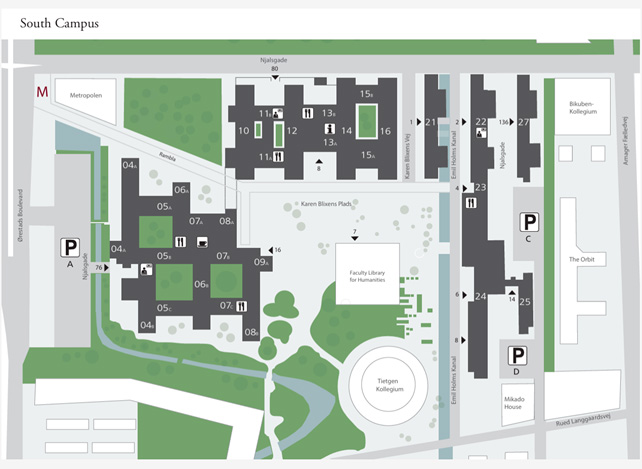
Karen Blixens Plads 8
DK-2300, Copenhagen S
View directions.
View on map of the Faculty of Humanities - South Campus.
View map of South Campus (pdf).
View map of all campuses at University of Copenhagen.
Roskilde University, Department of Communication and Arts
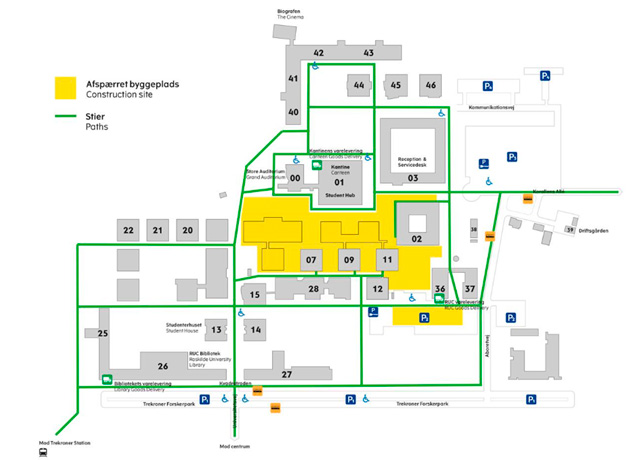
Kommunikationsvej 41
DK-4000, Roskilde
Building 41
Arrival by train from the Central Station (København H) to Trekroner St.
The nearest train station is Trekroner Station. It takes around 15 minutes to walk from the station to Building 41.
How to get from Copenhagen Central Station (København H) to Trekroner Station
The regional train departs four times per hour usually from track 7 or 8 at Copenhagen Central Station. The train ride is approximately 20-25 minutes.
To arrive for registration at 09:00 on Thursday 22 May, we suggest to take the train at 08:41 am from track 8.
Upon exiting the station, head straight across Trekronervej toward the Trekroner Centre. Follow the path through the centre, cross the bridge over Trekroner Allé, and continue towards Trekroner Lake. Once at the lake, take the path to the right, following the lakeside. After passing the ball field, turn right and walk up toward the library. Continue until you reach RUC's main entrance at the "Square Root." Enter through the large portal, and follow the signs leading to Building 41. The walk from the station to Building 41 should take approximately 15 minutes.If you are late, you have to take a train on your own.
You can check out trains with the final destinations of Roskilde Station and Næstved Station. You can also plan your journey via Rejseplanen.
How to acquire a train ticket
Read more about the different options for tickets to public transportation here.
Always buy a ticket before boarding the train and keep the ticket with you in case a conductor asks to see it.
You can buy your bus, train and metro tickets online.
You can also buy your ticket on the go using the app "DOT Mobilbilletter". Click "Indstillinger" (settings) followed by "Sprog" (language) to select the English version. From there you can select the fare you need and enter your credit card details.
Using the DOT app, you can also buy the City Pass Large, which allows you to travel freely in Copenhagen and the greater Copenhagen area, which includes Roskilde, for your choice of either 24, 48, 72, 96, or 120 hours (prices range from 160-600 DKK).
Tickets can also be bought in ticket machines, which accept Danish cash and the most common credit cards, or 7-Eleven kiosks at the train and metro stations.
How to get from Trekroner Station to Building 41:
Directions can be found using the interactive map of Roskilde University Campus: MazeMap.
Arrival by car
Please note that at Roskilde University you are only allowed to park where there are blue parking signs.
The closest available parking space is at P3.
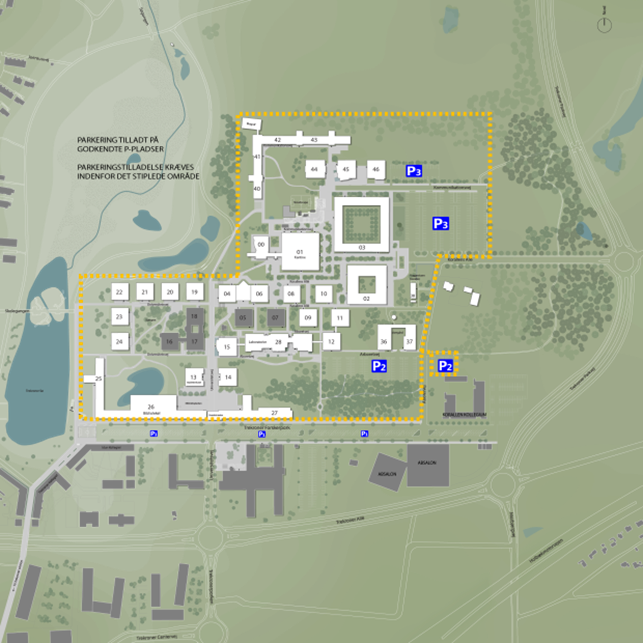
Please be advised that transportation to Roskilde University is the responsibility of the attendee, and the conference does not cover this expense.
Organizers homepages
Map of South Campus
View directions.
View on map of the Faculty of Humanities - South Campus.
View map of South Campus (pdf).



